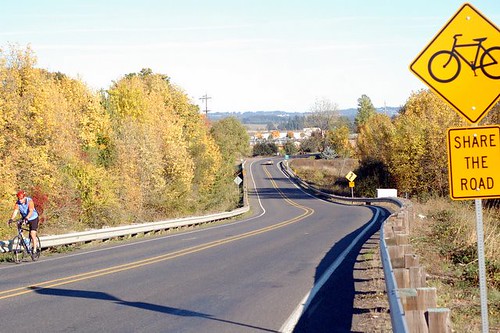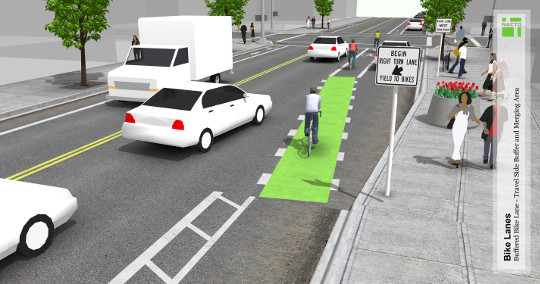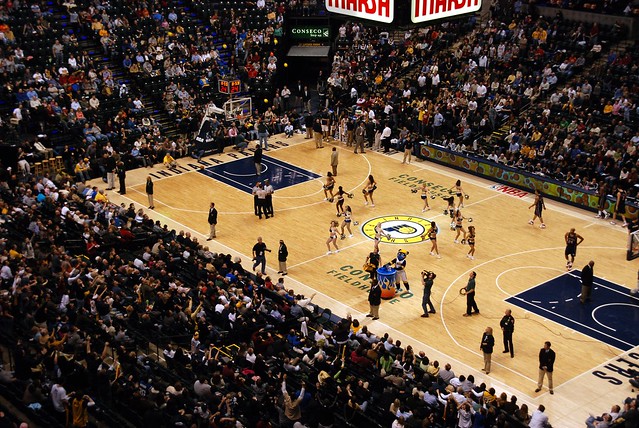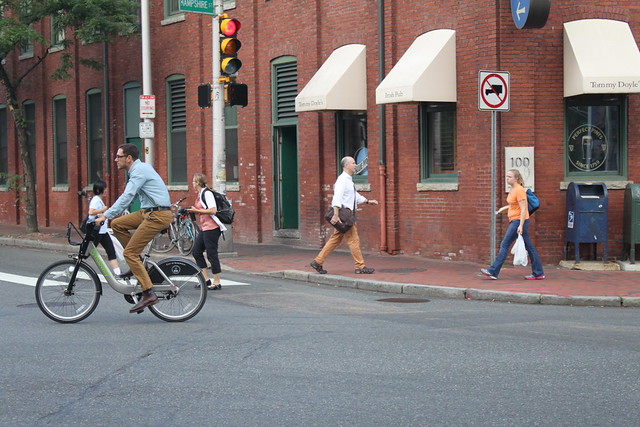
(Photo J. Maus/BikePortland)
Over the last week or so, a bunch of great ideas from other cities have been washing up on our digital shorelines. Let’s take a look at a few.

The sentiment is great. The phrase is confusing. Delaware has officially killed it.
The classic case: when you come up behind a person on a bike while driving a car, should the person on the bike pull right to make way? Safety would say that this isn’t always a good idea. But to many drivers, “Share the road” says otherwise. “Bikes may use full lane” is completely clear.
Coordinating behind the scenes with state officials who had realized this, Bike Delaware fronted a campaign to eliminate the confusing phrase from new road signs. Maybe it’s time for Oregon to stop putting the phrase on tens of thousands of its best-selling specialty license plate.
What it’d take: Somebody prioritizing it and the Bicycle Transportation Alliance publicly validating their decision.

The National Association of City Transportation Officials Urban Street and Bikeway design guides, written with human-friendly streetscapes rather than automotive mobility in mind, is a city-oriented expansion pack for the bible of engineering, the AASHTO family of manuals.
It’s most useful in cities — The Dalles, with state Highway 30 running through its downtown, comes to mind — that want to be bike-friendly but lack in-house staff with expertise on modern pedestrian bumpouts, protected bike lanes and so on. On Thursday, after a years-long advocacy campaign by the California Bicycle Association, the conservative California Department of Transportation endorsed the guide, following Massachusetts and Washington’s DOTs. It’s not clear what’s holding Oregon back.
What it’d take: A legal review by ODOT and a decision by its executives.

The Simon Family, which owns the Pacers, got naming rights to a 250-bike sharing system in Indianapolis in exchange for an undisclosed donation and a pledge to fund ongoing operations. Wouldn’t it be perfect for the bike-friendly Trailblazers to sponsor all or part of Portland’s 750-bike system that will be great at bringing people, congestion-free, to their Rose Quarter stadium?
What it’d take: Money from the Blazers and a system they feel comfortable putting their name on.

These aren’t actually new, but cities around the country are bringing the trend back. These are much more expensive in the short run than paint or plastic posts, but they’re going to last much longer and they’re certainly better at keeping cars clear and people comfortable. Though they don’t work in every setting, curbs are great in many places (Beaverton, for example) for making bike lanes an actually pleasant experience for most people to ride in.
What it’d take: Money (about $50,000 per mile of curb) and city leaders willing to frame this as something that makes biking accessible to everyone.

The sneakiest thing about a much–covered program that lets doctors “prescribe” bikeshare memberships to low-income Bostonians for $5 is that it seems to be nothing more than a brilliant marketing campaign for an existing public health program.
What it’d take: Money from public health sources and a medical provider that wants a bunch of free publicity.
